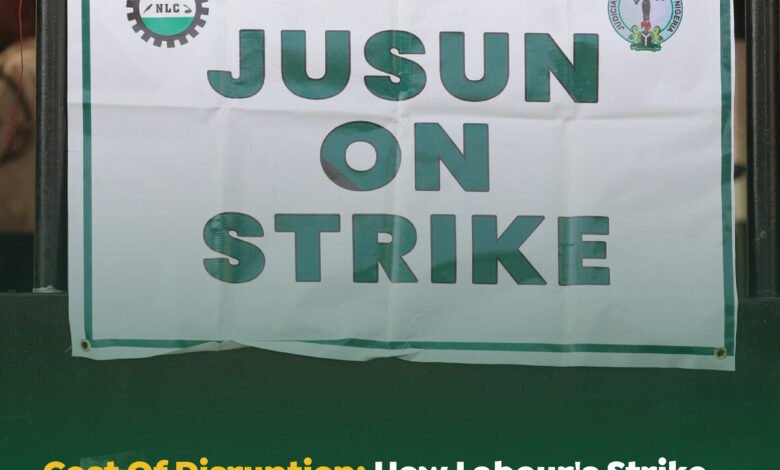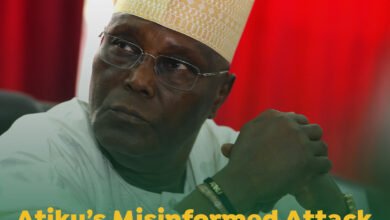
While Nigeria’s recent labour strike was “suspended” in less than 48 hours, there were a myriad of losses that came with the ill-advised action.
Beyond the significant financial losses suffered by both the government and private sectors, the strike caused hardship for many Nigerians.
The national grid was shut for no just course, travels disrupted as airports were picketed and sadly hospitals were not even spared as most could only render skeletal services.
Innocent students of the Ondo State School of Health Technology, Akure were among those at the receiving end as they faced disruptions to their exams.
The Nigeria Labour Congress (NLC) and Trade Union Congress (TUC) in Ondo threw caution to the wind; enforcing the strike at the institutions and several other places
A nursing student, simply identified as Titilope, spoke for many when she said, “We had started writing when they came to scatter everything. We were not allowed to finish our paper. It is our second-semester exams.”
Many workers, caught between lost wages and the rising cost of living, faced a difficult decision. John Femi, a security guard in Lagos, shared his experience, “The strike meant no pay for two days, which hurt. But with rising food prices, the current wage makes it hard to survive. It’s a tough choice.”
The national team, the Super Eagles, were also impacted. With just 15 players on the ground, they were unable to have a proper training session for their crucial World Cup qualifier.
The Nigeria Football Federation (NFF) had to take drastic measures.
“There was great relief when Ademola Olajire, NFF’s Director of Communication, confirmed that Defenders Semi Ajayi, Bright Osayi-Samuel and Calvin Bassey, alongside Midfielder Frank Onyeka and Forward Paul Onuachu, had landed at the Victor Attah International Airport.
“They landed in Uyo just after noon, aboard a private jet arranged by the NFF, and were driven to Ibom Hotel and Golf Resort, to meet up with their teammates for lunch,” he said.
Businesses Oppose Strike Action
Members of the Organized Private Sector (OPS) strongly voiced their opposition to the strike, highlighting the potential damage to the already fragile economy.
The Nigeria Employers’ Consultative Association (NECA) argued that striking before the tripartite committee had finished its deliberations was unwise
NECA’s Director General, Adewale-Smatt Oyerinde, emphasized the negative impact on businesses, particularly small and medium-sized enterprises (SMEs).
He warned that a strike could “worsen the already worsened health of many businesses, especially the SMEs, and drive others to the precipice, a situation that could potentially compound the bad unemployment rate and worsen the insecurity situation in the country.”
The Manufacturers Association of Nigeria (MAN) echoed these concerns.
Their Director General, Segun Ajayi-Kadir, pointed out that the strike would further constrain productivity and reduce sales. He also highlighted the potential disruption to logistics and raw material movement, leading to lower government revenue.
“This was not a good time for the strike action considering the ailing economic situation,” Ajayi-Kadir argued.
A Call for Collaboration
Representatives from the National Association of Small and Medium Enterprises (NASME) also expressed concerns. Segun Kuti-George, National Vice President, acknowledged that any strike action would negatively impact the economy. He echoed a sentiment shared by many – “every strike action has consequences.”
The message from the business community is clear: collaboration is needed. Working together, as NASME suggests, the government, labour unions, and businesses can find solutions that benefit all Nigerians.





